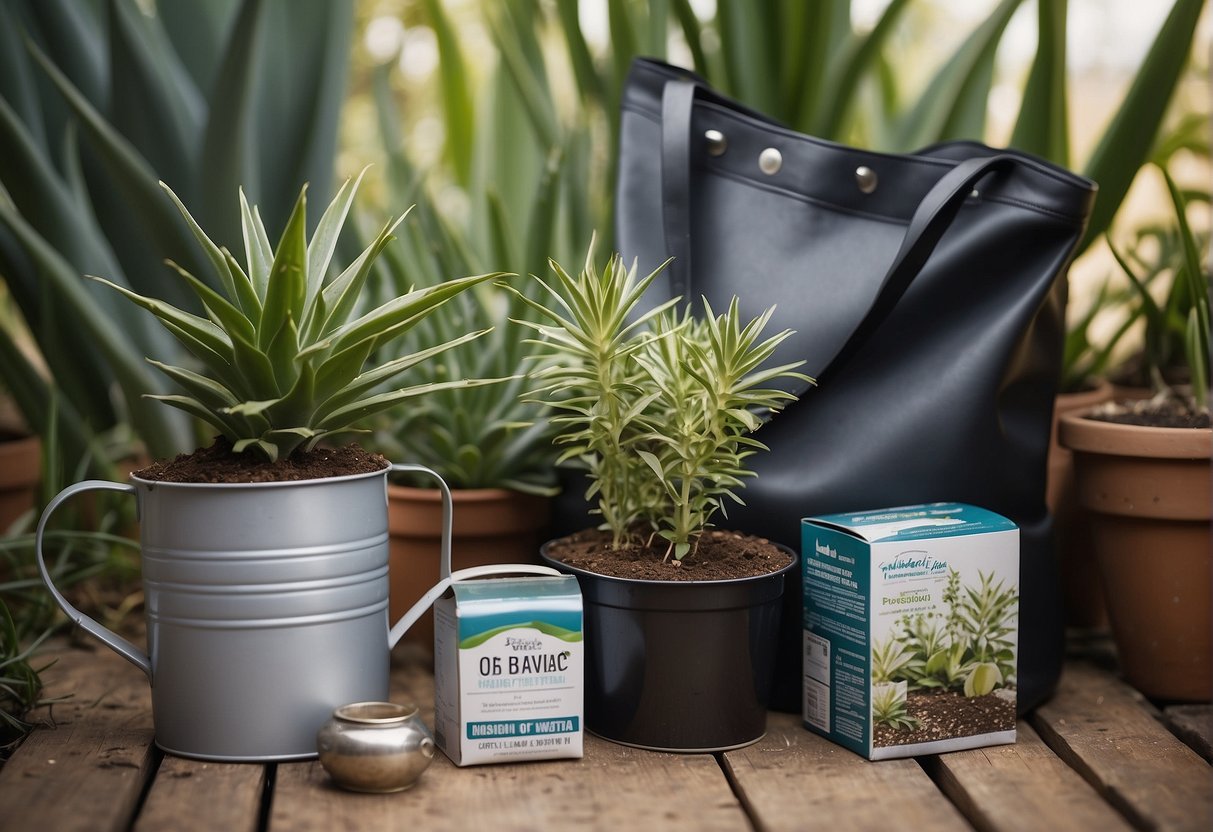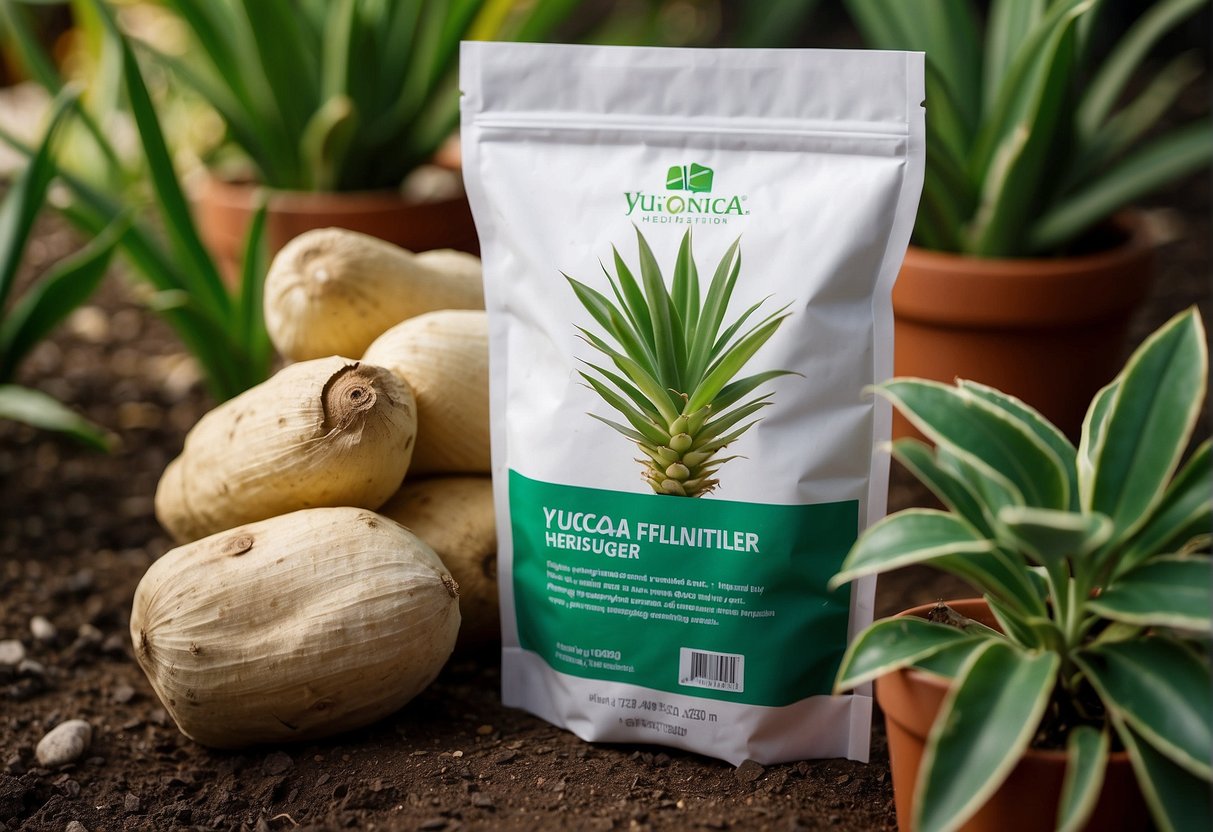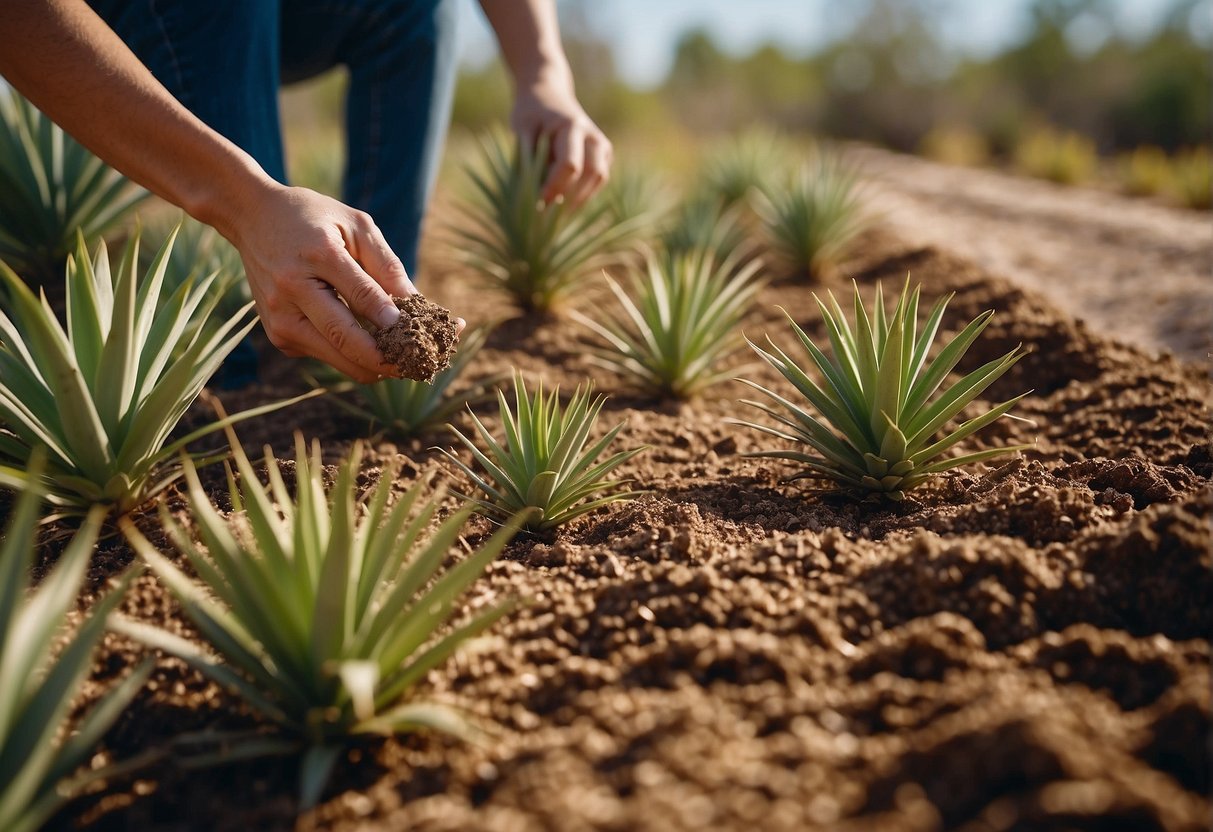What is the Best Fertilizer for My Yucca Plants?
Should you be aiming to maintain the health and vigor of your yucca plants, it’s crucial to grasp the correct method of fertilizing them. Fertilizer delivers vital nutrients necessary for your plants’ growth and well-being. Yet, it’s important to note that fertilizers vary in their composition, and selecting an appropriate one is key to enhancing the overall health and vibrancy of your yucca plants.

Before you start fertilizing your yucca plants, it’s important to have a basic understanding of their needs. Yuccas are desert plants that are adapted to thrive in hot, arid environments. They have a unique root system that allows them to store water and nutrients, which means they don’t need to be fertilized as often as other plants. However, when you do fertilize your yucca plants, it’s important to use the right type of fertilizer and apply it correctly.
When it comes to fertilizing yucca plants, there are a few key things to keep in mind. In this article, we’ll cover the basics of yucca plant care and explain how to choose the best fertilizer for your plants. We’ll also provide tips for fertilizing yucca plants effectively, as well as advice for preventing and addressing common issues that can arise when fertilizing these unique plants.
Understanding Yucca Plant Basics

Yucca Plant Characteristics
Yucca plants are hardy, perennial plants that can be grown both indoors and outdoors. They are known for their sword-like leaves and tall, spiky blooms. Yucca plants require minimal care and are a great option for those who want an overall healthy plant with minimal maintenance.
Optimal Growing Conditions
Yucca plants thrive in full sun and well-draining soil. They can tolerate a wide range of temperatures, but prefer temperatures between 60-95°F. When grown indoors, yucca plants should be placed in a bright, indirect light.
To ensure optimal growth, it is important to provide your yucca plant with the right amount of water. Over-watering can lead to root rot, while under-watering can cause the leaves to turn brown and dry out. It is recommended to water your yucca plant once a week, or when the top inch of soil feels dry to the touch.
When it comes to fertilizing your yucca plant, it is important to choose the right type of fertilizer. A balanced, all-purpose fertilizer can be used during the growing season (spring and summer), but should be avoided during the dormant season (fall and winter). Alternatively, a slow-release fertilizer can be used once a year in the spring to provide long-lasting nutrients to your yucca plant.
By providing your yucca plant with the optimal growing conditions and the right type of fertilizer, you can ensure that your plant remains healthy and vibrant for years to come.
Essential Fertilization Knowledge
If you want your yucca plants to thrive, it is important to provide them with the right nutrients. Fertilization is an essential part of yucca plant care, and it can help to ensure that your plants are healthy and vibrant. Here are some key things to keep in mind when it comes to fertilizing your yucca plants.
The Role of Nutrients in Yucca Health
Yucca plants require a variety of nutrients to grow and thrive. Some of the most important nutrients for yucca plants include nitrogen, phosphorus, potassium, iron, and magnesium. These essential nutrients play a critical role in the plant’s growth and development, and they can help to ensure that your yucca plants are strong and healthy.
Selecting the Right Fertilizer
When it comes to fertilizing your yucca plants, there are several different types of fertilizers to choose from. Some of the most common types of fertilizers include balanced fertilizers, liquid fertilizers, granular fertilizers, and slow-release fertilizers. Organic fertilizers such as bone meal, compost, epsom salt, and coffee grounds are also a great option.
When selecting a fertilizer for your yucca plants, it is important to consider the specific needs of your plants. For example, if your yucca plants are lacking in certain nutrients, you may want to choose a fertilizer that is high in those nutrients. Additionally, you should consider the type of soil your plants are growing in and the pH level of that soil. This will help you to choose a fertilizer that is best suited for your yucca plants’ specific needs.
Overall, fertilizing your yucca plants is an important part of keeping them healthy and vibrant. By understanding the role of nutrients in yucca plant health and selecting the right fertilizer for your plants, you can help to ensure that your yucca plants thrive year after year.
Fertilizing Yucca Plants Effectively

Yucca plants require proper fertilization to achieve optimal growth and health. In this section, we will discuss the best practices for fertilizing your yucca plants.
Timing and Frequency of Fertilization
The best time to fertilize your yucca plant is during the growing season, which is typically during the spring and summer months. It is recommended to fertilize your yucca plant once every two weeks during this time. However, during the fall and winter months, yucca plants are dormant and do not require fertilization.
Over-fertilization can be harmful to your yucca plant. It is important to follow the instructions on the fertilizer package and not exceed the recommended frequency of fertilization.
Application Techniques
There are various techniques for applying fertilizer to your yucca plant. One effective method is to use a controlled-release fertilizer, which slowly releases nutrients into the soil over time. This can be especially useful for yucca plants that are potted or planted in poor soil.
Another effective technique is to apply fertilizer directly to the soil around the base of the plant. It is important to avoid getting fertilizer on the leaves or stem of the plant, as this can cause damage.
N-P-K Ratio
When choosing a fertilizer for your yucca plant, it is important to consider the N-P-K ratio. This ratio represents the percentage of nitrogen, phosphorus, and potassium in the fertilizer. For yucca plants, a balanced fertilizer with an equal ratio of N-P-K (such as 10-10-10) is recommended.
Proper Fertilization for New Growth
Fertilization is especially important for new growth on your yucca plant. Early summer is the optimal time to fertilize your yucca plant, as this is when new growth is most likely to occur.
In conclusion, proper fertilization is crucial for the health and growth of your yucca plant. By following these tips for timing, frequency, application techniques, and N-P-K ratio, you can ensure that your yucca plant receives the proper nutrients for optimal growth.
Preventing and Addressing Common Issues
Yucca plants are generally hardy and low maintenance, but they can still experience issues related to fertilization. Here are some tips for preventing and addressing common issues that may arise.
Identifying Nutrient Deficiencies
Yellowing leaves, stunted growth, and leaf burn are all signs of nutrient deficiencies in yucca plants. The most common nutrient deficiencies in yucca plants are manganese and copper. If you notice these symptoms, it may be time to adjust your fertilization routine.
To prevent nutrient deficiencies, make sure you are using a fertilizer that is specifically formulated for yucca plants. It’s also important to ensure that your soil pH is within the optimal range for yucca plants, which is between 6.0 and 7.0.
Avoiding Over-Fertilization and Plant Stress
Over-fertilization can cause nutrient burn, which can be just as damaging to your yucca plants as nutrient deficiencies. To avoid over-fertilization, always follow the instructions on your fertilizer package carefully. It’s also important to avoid fertilizing your plants during periods of stress, such as during transplanting or when the plant is experiencing extreme temperatures.
Pruning can also help prevent plant stress and promote healthy growth. By removing dead or damaged leaves, you can improve air circulation and reduce the risk of pests and diseases.
Overall, taking care to properly fertilize and care for your yucca plants can help prevent common issues and promote healthy growth.
Frequently Asked Questions
What type of fertilizer should I use for an indoor yucca plant?
For indoor yucca plants, you should use a balanced fertilizer with equal amounts of nitrogen, phosphorus, and potassium. A slow-release fertilizer is also recommended to avoid over-fertilization. You can use a liquid or granular fertilizer, but make sure to dilute the liquid fertilizer before applying it to your plant.
How often should I feed my outdoor yucca plant?
Outdoor yucca plants should be fertilized once a month during the growing season, which is typically from spring to fall. You can use a balanced fertilizer with equal amounts of nitrogen, phosphorus, and potassium. A slow-release fertilizer can also be used to provide nutrients to your plant over a longer period of time.
Are there specific fertilizers recommended for yucca plants in pots?
Yucca plants in pots require a fertilizer that is specifically formulated for container plants. Look for a fertilizer that contains a balanced ratio of nitrogen, phosphorus, and potassium, as well as micronutrients such as iron, magnesium, and calcium. A slow-release fertilizer is also recommended to avoid over-fertilization.
What should I do to maintain a healthy yucca during the winter?
During the winter, yucca plants require less fertilizer than during the growing season. You should fertilize your yucca plant once every two to three months with a balanced fertilizer. Make sure to reduce your watering schedule as well, as yucca plants require less water during the winter.
Is it safe to use general-purpose fertilizers like Miracle-Gro on my yucca plants?
Yes, general-purpose fertilizers like Miracle-Gro can be used on yucca plants. However, make sure to dilute the fertilizer before applying it to your plant, as yucca plants can be sensitive to over-fertilization. Follow the instructions on the fertilizer packaging carefully.
What are the signs of a yucca plant needing fertilization and how can I address them?
The signs of a yucca plant needing fertilization include slow growth, yellowing leaves, and a lack of flowers. To address these issues, you can fertilize your plant with a balanced fertilizer that contains equal amounts of nitrogen, phosphorus, and potassium. Make sure to follow the instructions on the fertilizer packaging carefully and avoid over-fertilization.


